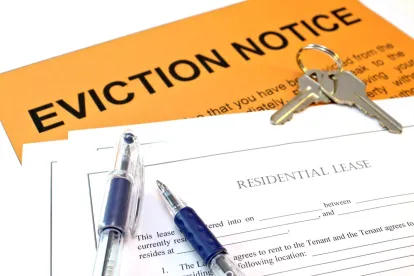A proposed piece of COVID-19 relief legislation could have major implications for California lenders and servicers, particularly in the mortgage lending industry, if passed into law. The assembly bill, entitled “COVID-19 Homeowner, Tenant, and Consumer Relief Law of 2020,” (“AB 2501”) is intended to provide relief to residential and multifamily mortgage borrowers, as well as borrowers under loans secured by a mobile home or motor vehicle, by requiring the loan servicers to provide forbearance to borrowers experiencing a financial hardship during the Covid-19 emergency. It is also notable that borrowers under certain payday loans, known as deferred deposit transactions, would also benefit from AB 2501 although the specified relief is not forbearance but fee restrictions and a requirement for payment plan options in accordance with specified procedures.
Residential mortgage borrowers may request forbearance for up to 180-days by submitting a request to the mortgage servicer. The borrower’s forbearance request would not require any documentation other than a written attestation, if the mortgage servicer requests one. Delinquent borrowers would be automatically entitled to a 180-day forbearance and could then extend the timeframe if they continue to experience financial hardship. During the forbearance period, mortgagees and servicers would be prohibited from commencing or continuing any judicial foreclosure action, recording a Notice of Default, or taking any steps to evict a person following a foreclosure. The bill would not apply to vacant or abandoned dwellings.
AB 2501 is particularly notable for residential mortgage servicers as they would be required to comply with a number of onerous requirements and face significant penalties for failure to comply. For example, upon placing a mortgage obligation in forbearance, a mortgage servicer must provide the borrower with “a complete and accurate description of the loss mitigation and reinstatement options that will be available to the borrower at the end of the forbearance period.” A mortgage servicer that violates any of AB 2501’s requirements not only forfeits their rights to commence foreclosure on a borrower that is harmed by the violation, but is also subject to new legal liability if the post-forbearance payment options contain false or misleading statements.
Borrowers under multifamily mortgage loans would similarly be provided with a 180-day forbearance, subject to extension, by affirming to the servicer that it is experiencing a financial hardship during COVID-19 and providing documentation of the financial hardship. AB 2501 would require a multifamily borrower, during the forbearance term, to provide rent relief to tenants living in the property secured by the mortgage and would prohibit eviction for a tenant’s nonpayment of rent or application or accrual of fees or other penalties on renters for nonpayment of rent.
Borrowers with a vehicle secured credit obligation experiencing a financial hardship due to Covid-19 would be able to request forbearance for up to 90 days by submitting a request to the servicer affirming the consumer is experiencing financial hardship and to extend the forbearance period upon request, if the consumer affirms that they continue to experience hardship for a cumulative total of 270 days of forbearance. The bill would prohibit a servicer of vehicle-secured credit from taking any action to repossess a mobile home or motor vehicle that secures a loan during the COVID-19 emergency and for the 180-day period thereafter. Further, the bill would limit the rate of interest that could be applied to the consumer’s account to 7% per annum.
Industry Opposition to AB 2501
The assembly bill passed through the Assembly’s Banking and Finance Committee late last month. AB 2501 has attracted strong opposition from mortgage lenders, servicers, and numerous financial trade industry organizations at both the federal and state level, including groups such as the American Bankers Association[1] and the California Mortgage Broker’s Association (“CMBA”)[2], among others, all expressing concerns about the potential the bill has to cause significant disruptions in the mortgage markets and limit access to affordable credit by would-be borrowers. The deadline for getting the bill to the Assembly floor for vote is June 19th. A revised version of the bill was issued on June 4, 2020 which doesn’t address the core mortgage-related issues raised by many of the commenters other than the bill now limits the time period during which a borrower may request forbearance to the duration of the Covid-19 emergency removing the 180-day period following the emergency specified in the original draft of the bill.
The current version of AB 2501, last amended on June 4, 2020, can be accessed here:
https://leginfo.legislature.ca.gov/faces/billTextClient.xhtml?bill_id=201920200AB2501
As you are aware, things are changing quickly and there is no clear-cut authority or bright line rules. This is not an unequivocal statement of the law, but instead represents our best interpretation of where things currently stand.
FOOTNOTES
[1] The American Financial Services Association, Bank Policy Institute, Credit Union National Association, the Housing Policy Council, Mortgage Bankers Association and Securities Industry and Financial Markets Association were all signatories to a May 17 letter to AB 2501’s author Assembly Member Limón. https://www.aba.com/-/media/documents/letters-to-congress-and-regulators/joint-trades-california-ab-2501-051720.pdf?rev=6276e601e2314d6d96dd92209331f15e
[2] The CMBA has gathered a 12-organization coalition calling for amendments to Assembly Bill 2501. https://www.mortgagemedia.com/wp-content/uploads/2020/05/AB-2501-Limon-Mortgage-Servicers-Opposition.pdf




 />i
/>i

